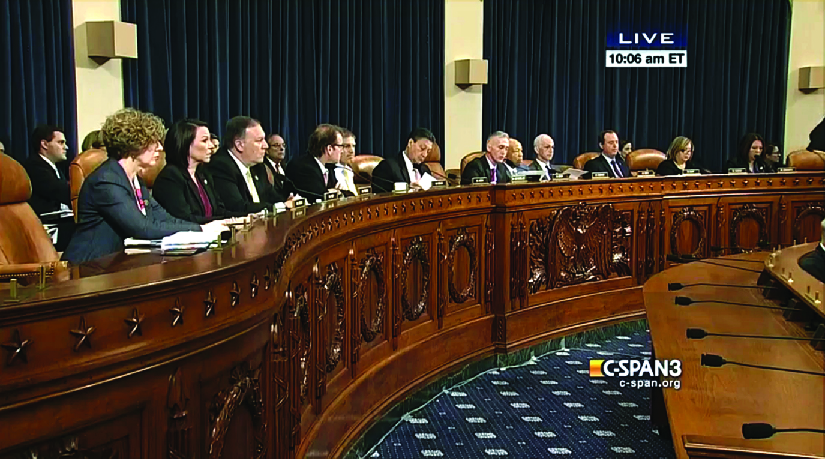| << Chapter < Page | Chapter >> Page > |
Committee hearings can become politically driven public spectacles. Consider the House Select Committee on Benghazi, the committee assembled by Republicans to further investigate the 2011 attacks on the U.S. Consulate in Benghazi, Libya. This prolonged investigation became particularly partisan as Republicans trained their guns on then-secretary of state Hillary Clinton, who was running for the presidency at the time. In two multi-hour hearings in which Secretary Clinton was the only witness, Republicans tended to grandstand in the hopes of gaining political advantage or tripping her up, while Democrats tended to use their time to ridicule Republicans (
[link] ).

Members of Congress bring to their roles a variety of specific experiences, interests, and levels of expertise, and try to match these to committee positions. For example, House members from states with large agricultural interests will typically seek positions on the Agriculture Committee. Senate members with a background in banking or finance may seek positions on the Senate Finance Committee. Members can request these positions from their chambers’ respective leadership, and the leadership also selects the committee chairs.
Committee chairs are very powerful. They control the committee’s budget and choose when the committee will meet, when it will hold hearings, and even whether it will consider a bill ( [link] ). A chair can convene a meeting when members of the minority are absent or adjourn a meeting when things are not progressing as the majority leadership wishes. Chairs can hear a bill even when the rest of the committee objects. They do not remain in these powerful positions indefinitely, however. In the House, rules prevent committee chairs from serving more than six consecutive years and from serving as the chair of a subcommittee at the same time. A senator may serve only six years as chair of a committee but may, in some instances, also serve as a chair or ranking member of another committee.

Because the Senate is much smaller than the House, senators hold more committee assignments than House members. There are sixteen standing committees in the Senate, and each position must be filled. In contrast, in the House, with 435 members and only twenty standing committees, committee members have time to pursue a more in-depth review of a policy. House members historically defer to the decisions of committees, while senators tend to view committee decisions as recommendations, often seeking additional discussion that could lead to changes.
Take a look at the scores of committees in the House and Senate. The late House Speaker Tip O’Neill once quipped that if you didn’t know a new House member’s name, you could just call him Mr. Chairperson.
The leader of the House is the Speaker, who also typically the leader of the majority party. In the Senate, the leader is called the majority leader. The minorities in each chamber also have leaders who help create and act on party strategies. The majority leadership in each chamber controls the important committees where legislature is written, amended, and prepared for the floor.

Notification Switch
Would you like to follow the 'American government' conversation and receive update notifications?